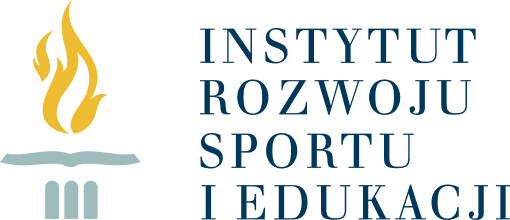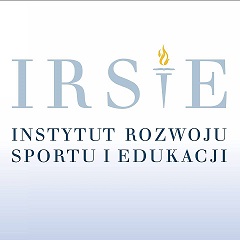Sport for Active Aging (SActAge)
Programme: Erasmus+
Key action: Sport
Action: Collaborative Partnerships
Action type: Small Collaborative Partnerships
Call for proposals: EAC-A02-2019-SPO
Start: 01-01-2021 - End: 31-12-2022
Project Reference: 623102-EPP-1-2020-1-IT-SPO-SSCP
EU Grant: 54,480.00 EUR
Partners:
Federazione Nazionale delle Associazioni per i Diritti Degli Anziani (ADA), Italy - coordinator
Universidade Sénior de Évora (USE) – Associação de aprendizagem ao Longo da Vida, Portugal
Instytut Rozwoju Sportu i Edukacji, Poland
Fundación Red Deporte Y Cooperación (RDYC), Spain
To practice Sport prevents the rising of degenerative diseases and contributes to the active aging and to a better quality of life. For this reason the World Health Organization has placed the absence of physical activity as one of the main causes of mortality in the world. For the elderly, the performance of physical activity can therefore determine a series of benefits for physical, mental and social health. Unfortunatly, even though the benefits of sport activities for the elderly, the partecipation of them in those activites is very low in Europe.
The project Sport fro Active Aging - SActAGe intends to promote active aging through sport.
In particular the objectives of the project are:
THE SACTAGE PROJECT
The project SActAGe intends to promote active aging through sport.
In particular the objectives of the project are:
1) Develop tools and strategies to effectively sensitize elderly people to the benefits of sports. The obstacles that prevent elderly people from practise sports can be psychological, cultural, structural. There are several strategies and activities that can break the wall of distrust, and help the elderly to practice sport activities, thus contributing to their physical, mental and social well-being.
2) Develop instruments and strategies to promote sport activities for elderly people in a domestic environment.
Often elderly people are forced to stay in the house for different reasons. They can still practise physical activities at home, the important is that this happens in a safe way. Is interesting to develop knowledge and motivations since those activities canbe practiced in a domestic environment. It is also useful to develop digital skills that allow the elderly to take advantage of video tutorials of the sport exercises, group lessons in video conference, etc.
3) Develop tools and strategies to promote outdoor sports practices, also by combining the enhancement of the territory.
Combining sport and nature not only maximizes the benefits for the mind and the body but also allows older people to enjoy the city's environmental, cultural and historical heritage. The aspects that make outdoor practice and sports activity particularly important is the relationship with the natural environment; the type of sports that can be practiced, such as trekking (considered among the best practices for the third and fourth age); sociability, since many of these practices can be carried out in groups; the possibility of combining sport and sport practice with the cultural use of the territory, as for the use of historical pathways (see for example the Way of Compostela, the Via Appia, the Via Francigena, etc.).
4) Develop tools and strategies to combine sport and motor activity for the elderly and social tourism.
With respect to the theme of Social Tourism, we are talking about an educational approach, increasingly taken into consideration in Europe. Social tourism is an approach that sees travel and tourism as important tools for the well-being of people and communities, and for this purpose it promotes policies and actions that allow tourism to be enjoyed even for disadvantaged population. In 2017, according to Eurostat research, around 62.7% of the EU population aged 55 to 64 participated in tourism for personal purposes, while the percentage of older people (aged 65 and over) ) who participated in tourism was less than half (47.4%). The main reasons were related to health and economic aspects.
Social tourism, in addition to being in itself a very important approach, it is related to sport practice.
5) Develop the volunteering of seniors as promoters of motor activities among the elderly.
Seniors can become voluntary operators to promote physical activity and health in order to help other elderly people in their community to make healthy lifestyle choices. In addition to bringing a benefit to the community, elderly volunteers, supported - where necessary - by sports coaches and operators, will experience a profound sense of well-being and utility by developing the feeling of still being an active part in their community and in their lives.
The project will realize those objectives through the creation of the following intellectual outputs:
A) Realization of Intellectual Outputs
The project expect different Intellectual Output
IO1- SActAge Good Practices
Research about good practices on how:
how to effectively sensitize older people to the benefits of sports;
- how to develop individual sports practices safely in the home;
- how to develop outdoor sports practices, also by combining the enhancement of the territory;
- how to develop sport and motor practices in the elderly by combining sport and social tourism;
- develop the volunteering of seniors for the promotion of motor activities among the elderly.
IO2- SActAge Manual
The SActAge manual aims to collect guidelines and practices on the four themes that the project intends to develop, the same explored through the research (IO1) :
- how to raise awareness among the elderly about the benefits of sports;
- how to develop the individual sports practices of the elderly in the home;
- how to develop outdoor sports practices, also by combining the enhancement of the territory;
- how to develop sport and motor practices in the elderly by combining sport and social tourism;
- develop the volunteering of seniors for the promotion of motor activities among the elderly.
The manual will contain both principles and guidelines, as well as practical exercises.
IO3 – SActAge Training module
A training module for senior volunteers, social workers, sports coaches, on how to become promoters of sport practices for elderly people.
B) Testing the activities - Attività di sperimentazione
Realization of experimental activities to test the outputs and thus contribute to their denifition. In particular those activities will concern:
- Testing of SActAge training module;
- Testing of the activities described in the SActAge Manual.
Target Groups of the Project
The Target groups of the project will be:
- Elderly people persone anziane;
- coach and sport instructors istruttori sportivi;
- educators and social workers working with older people;
- representatives of public institutions in the field of the elderly;
- civil society organizations, such as voluntary associations, senior centers, sports clubs etc.
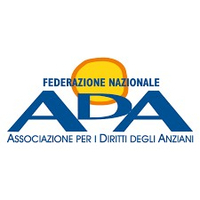
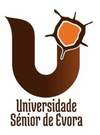
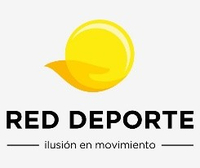

Meeting 14.07.2021
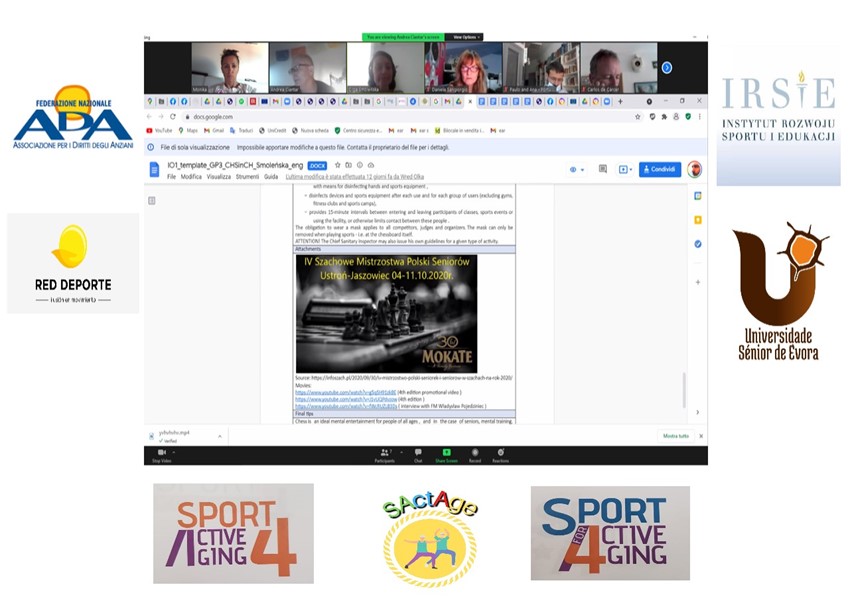
Spotkanie projektowe SactAge – Sport for Active Aging w Hiszpanii: 14-15.11.2022 r.
Kolejne spotkanie w ramach projektu SactAge – Sport for Active Aging odbyło się w Hiszpanii. W dniach 14-15.11.2022 r. partnerzy projektu z Włoch Federaziona Nazionale ADA, Portugalii Universidade Senior Evora USE i gospodarze w postaci przedstawicieli organizacji Red Deporte RDC, spotkali się w Madrycie.
- Na spotkaniu zakończyliśmy prace nad zbiorem SactAge Good Pracises (IO1), za który odpowiedzialny jest IRSIE.
- Doprecyzowaliśmy prace nad SactAge Manual (IO2), w którym znajdują się wytyczne na temat aktywizacji seniorów przed sport, w tym rola turystyki społecznej i rowerowej, sportów i gier tradycyjnych i rekreacyjnych czy aktywności i gier mentalnych, opracowanych przez przedstawicieli ekspertów wszystkich partnerów, a za opracowanie całości poradnika odpowiedzialny jest ADA (Włochy).
- Przedstawiliśmy program SactAge Training Module (IO3), w ramach którego organizujemy we współpracy z Katedrą Kultury Fizycznej UMK w Toruniu seminarium z prezentacjami ekspertów naukowych oraz warsztaty praktyczne z instruktorami, w tym zajęcia z turystyki rowerowej, sportów mentalnych czy jogi, a za opracowanie ogólnych wytycznych do programu treningowego, odpowiedzialny jest USE (Portugalia). Na spotkaniu w Madrycie miały miejsce również pokazy i zajęcia aktywności rekreacyjnych i gier z przedstawicielami seniorów i wolontariuszy z Portugalii i Polski (w tym reprezentant IRSiE Simon Kolendo), które zorganizowali przedstawiciele RDC (Hiszpania).
- Instytut reprezentowały na spotkaniu Monika Piątkowska i Olga Smoleńska, a we współpracę w ramach efektów projektu włączyli się również inni przedstawiciele IRSIE Sylwia Gocłowska i Bartosz Prabucki.
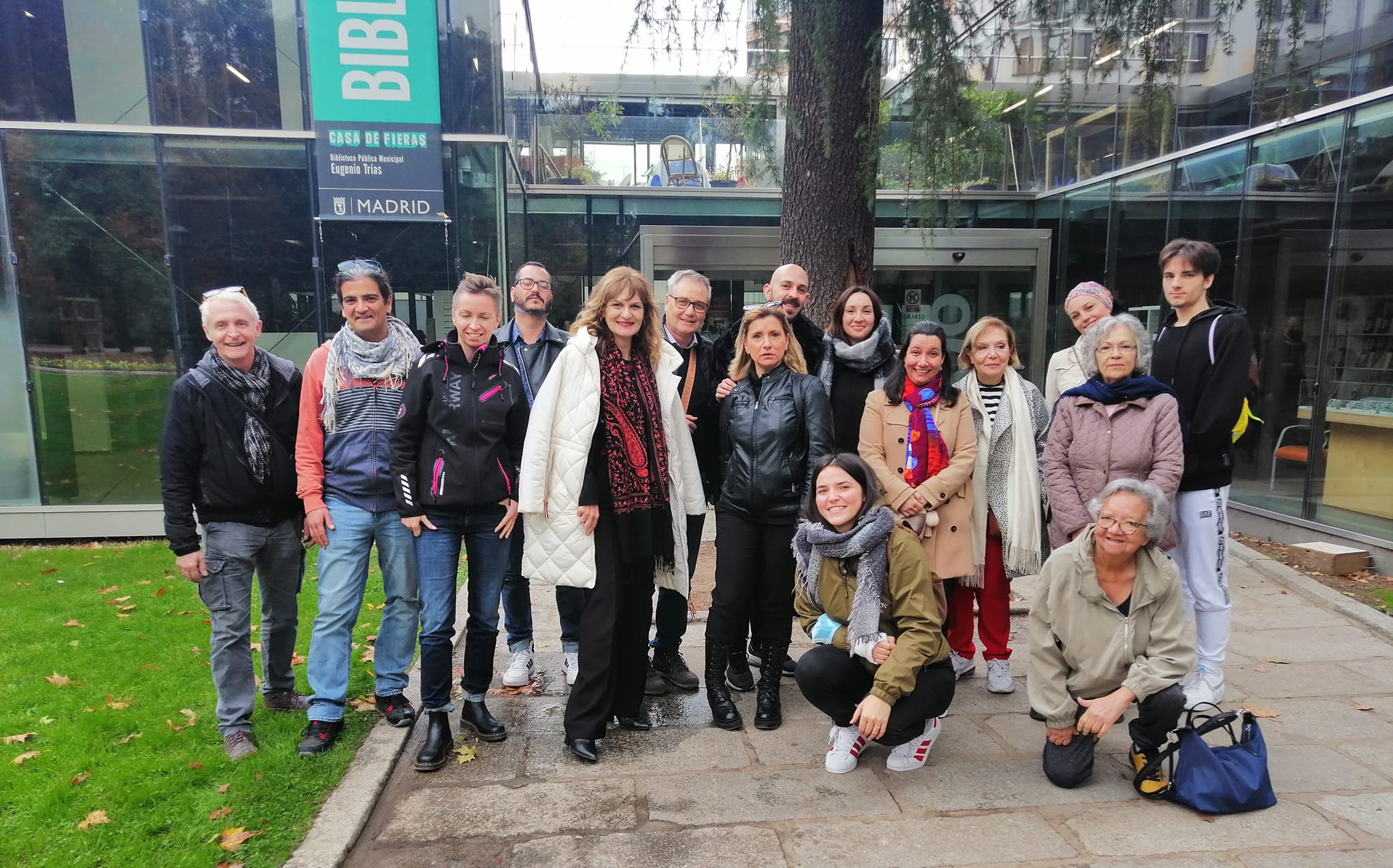
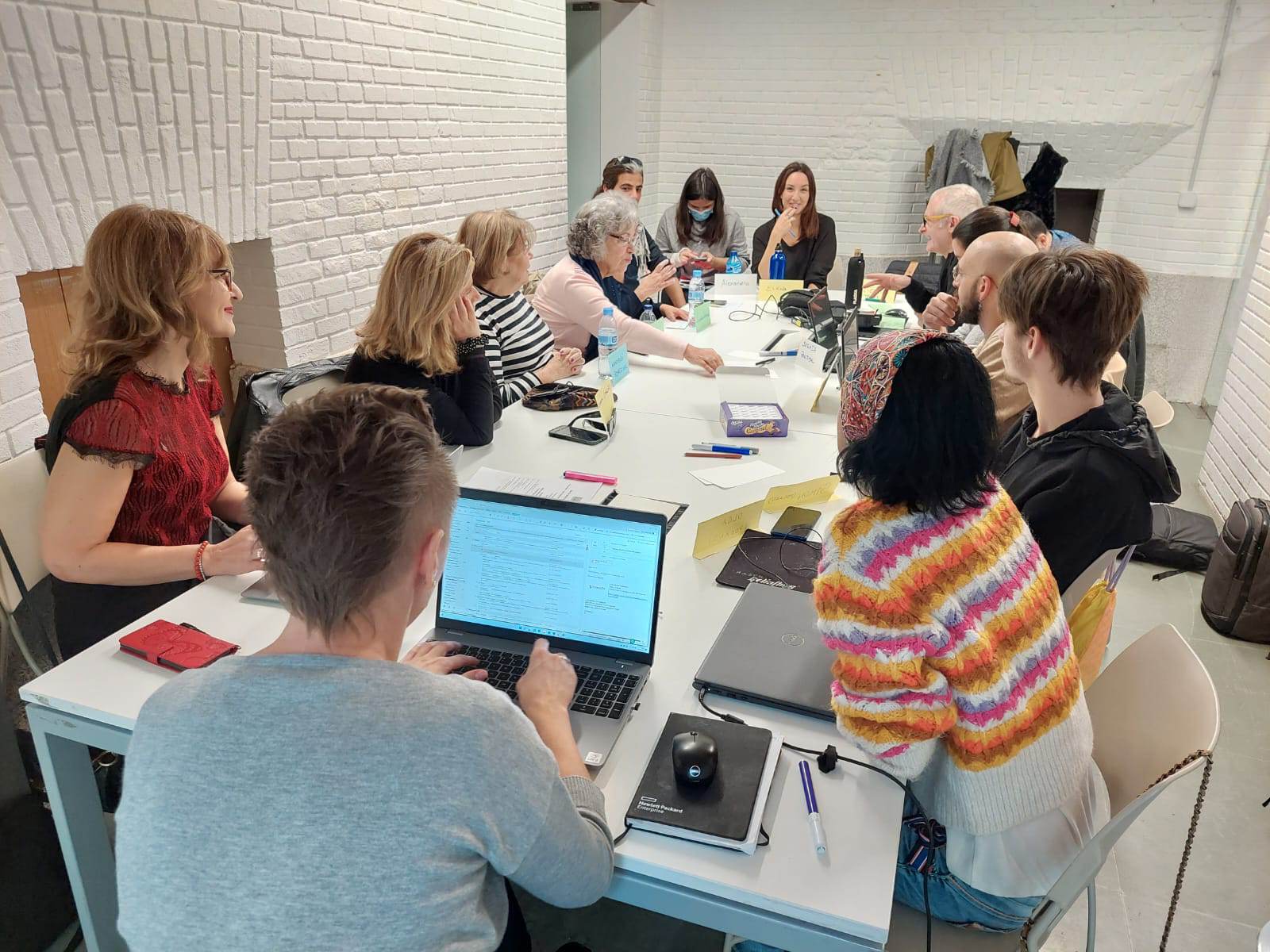
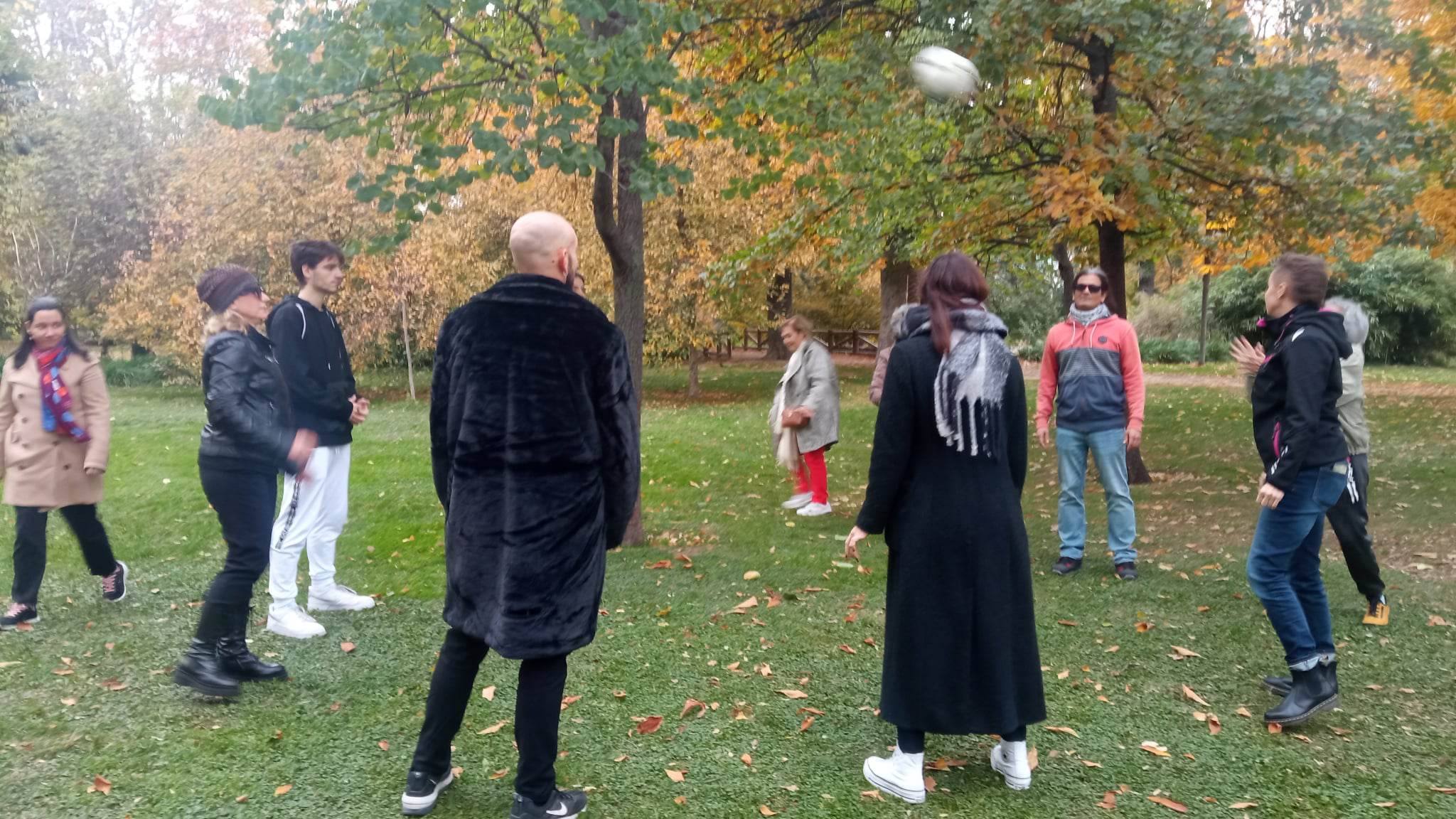
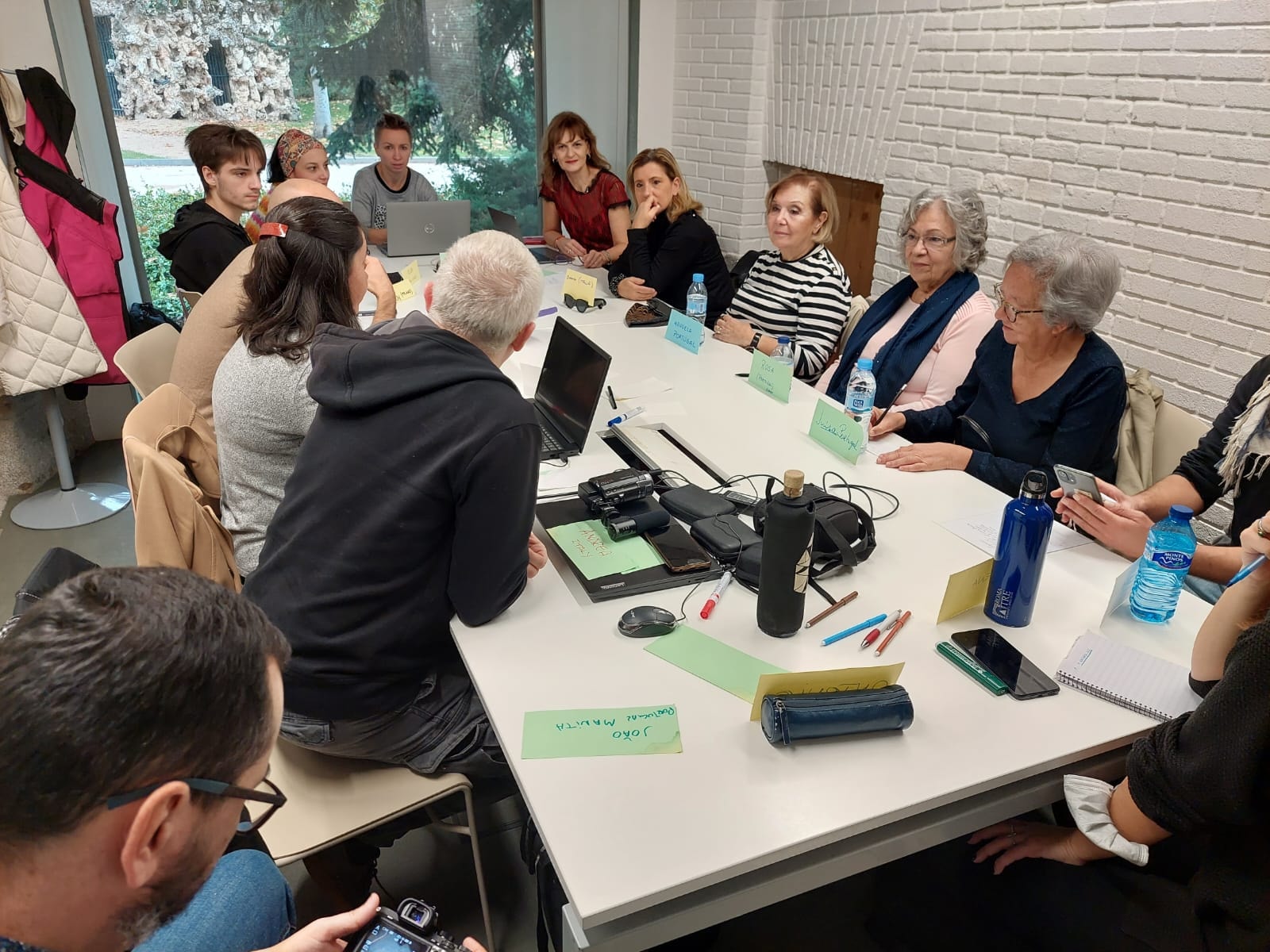
Spotkanie projektowe SactAge – Sport for Active Aging we Włoszech: 506.12.2022 r.
W dniach 5-6.12.2022 r. koorydynator projektu z Włoch, czyli Federaziona Nazionale ADA gościł, tym razem w pięknym Rzymie, przedstawicieli Portugalii z Universidade Senior Evora USE, Polski, czyli przedstawicieli IRSiE oraz organizacji Red Deporte RDC z Hiszpanii. Było to ostatnie spotkanie projektowe w ramach #SactAge – Sport for Active Aging.
Na spotkaniu dopracowaliśmy prace nad poradnikiem SactAge Manual (IO2) oraz SactAge Training Module (IO3) z ogólnymi wytycznymi na temat pracy i treningu z seniorami.
Pomiędzy głównymi spotkaniami projektowymi u większości partnerów odbywały się również lokalne seminaria naukowo-praktyczne z prezentacjami i warsztatami dla wolontariuszy i seniorów, w tym również w Polsce.
Na spotkaniu w Rzymie miały miejsce także inne zajęcia i aktywności, związane z włączaniem społecznym, turystyką i wspólnotą Unii Europejskiej, przygotowane przez przedstawiciele ADA (Włochy) i poprowadzone przez koordynatora projektu Andrea Ciantar, które będą stanowić dodatkowe efekty projektu w postaci storytellingu, a przedstawiciel Red Deporte Carlos Beltran przedstawił swoją książkę nt. historii i roli pierwszych kobiet w sporcie, w tym sylwetkę Haliny Konopackiej, pt. Prohibidas pero no vencidas. Mujeres pioneras del deporte, którą spróbujemy wydać również w Polsce.
Instytut reprezentowały na spotkaniu Dominika Zawadzka, Monika Piątkowska i Olga Smoleńska, a w seminaria i opracowanie wytycznych włączyli się również Sylwia Gocłowska i Bartosz Prabucki oraz przedstawiciele Katedry Kultury Fizycznej UMK w Toruniu, fizjoterapeuci i instruktorzy rekreacji, za co serdecznie dziękujemy.
Wkrótce na stronie projektu i Instytutu zostaną zamieszczone wszystkie opracowane przez nas publikacje na temat aktywizacji seniorów przez sport, a tymczasem już teraz zapraszamy ponownie do zapoznania się ze stroną internetową projektu oraz jego poszczególnymi działaniami i partnerami:
https://sport4activeaging.eu/sactage/...
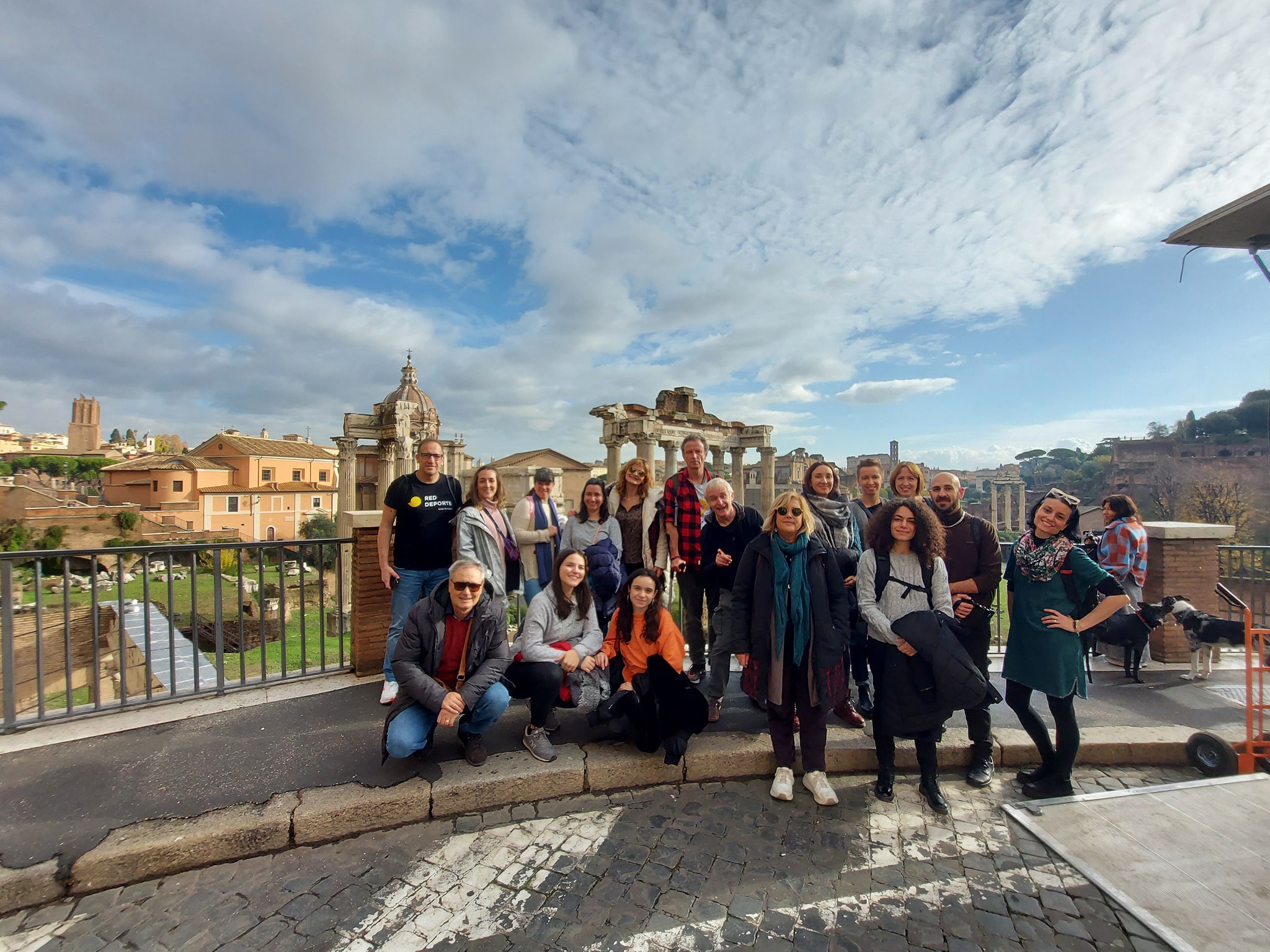
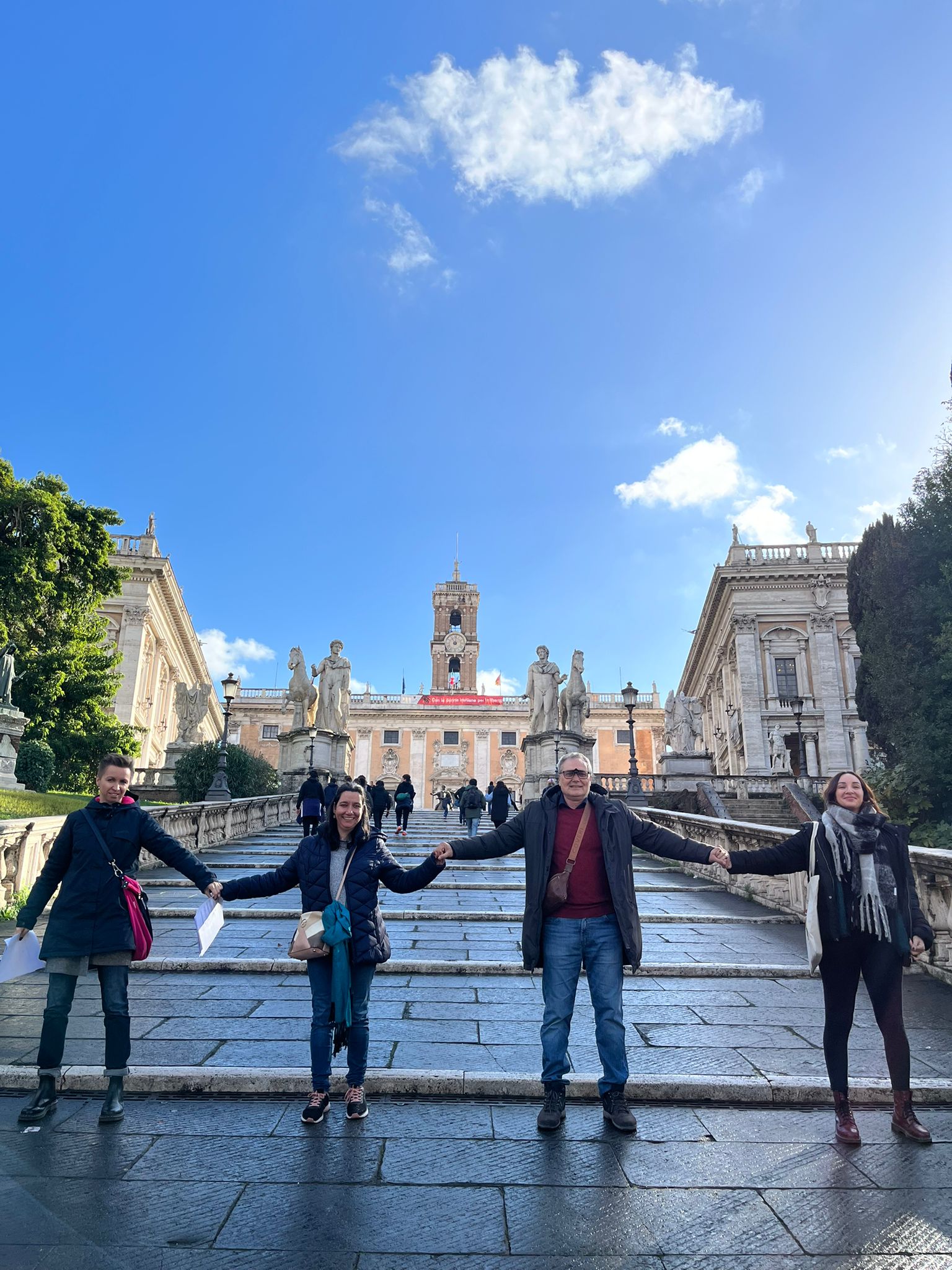
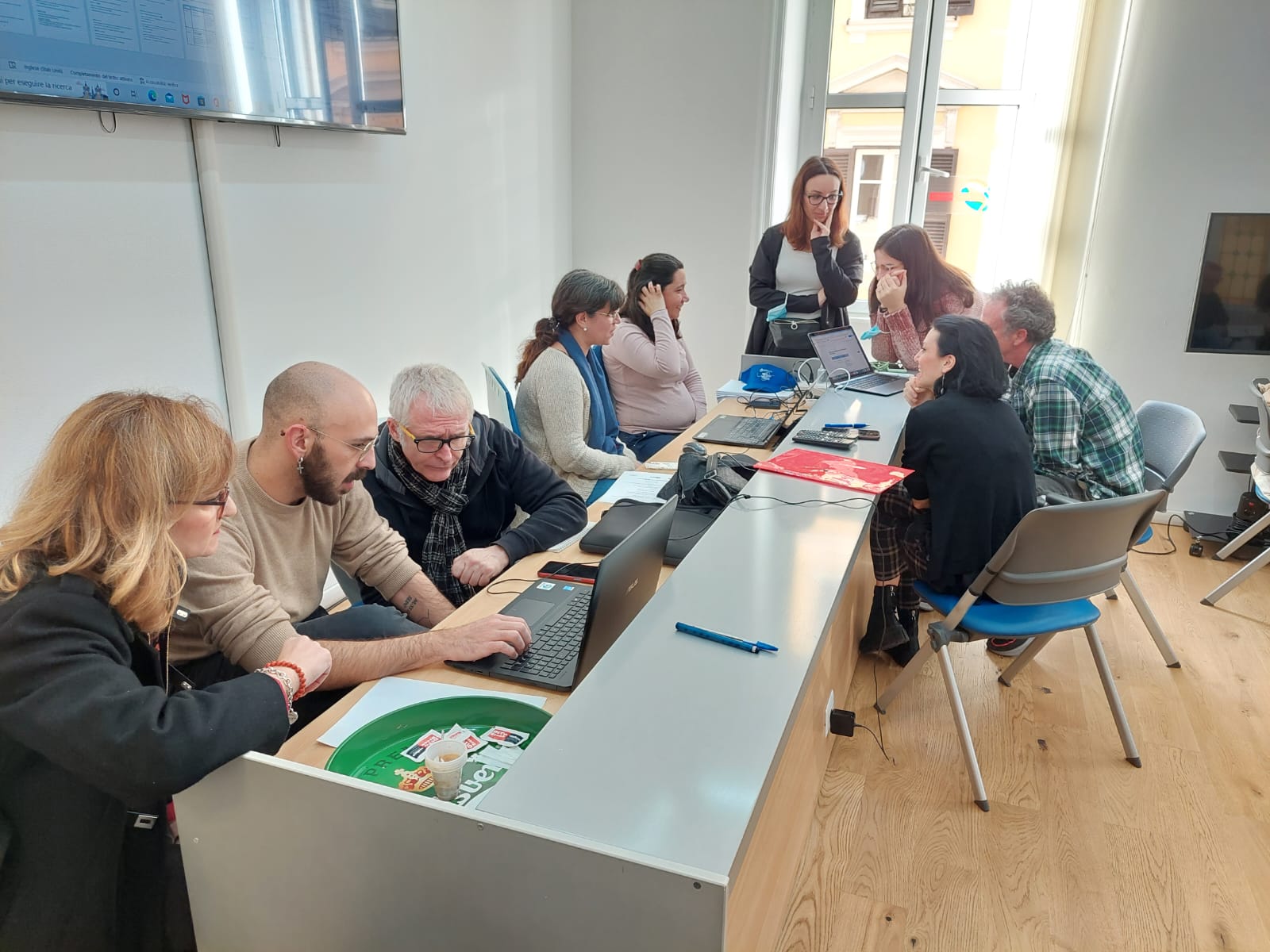
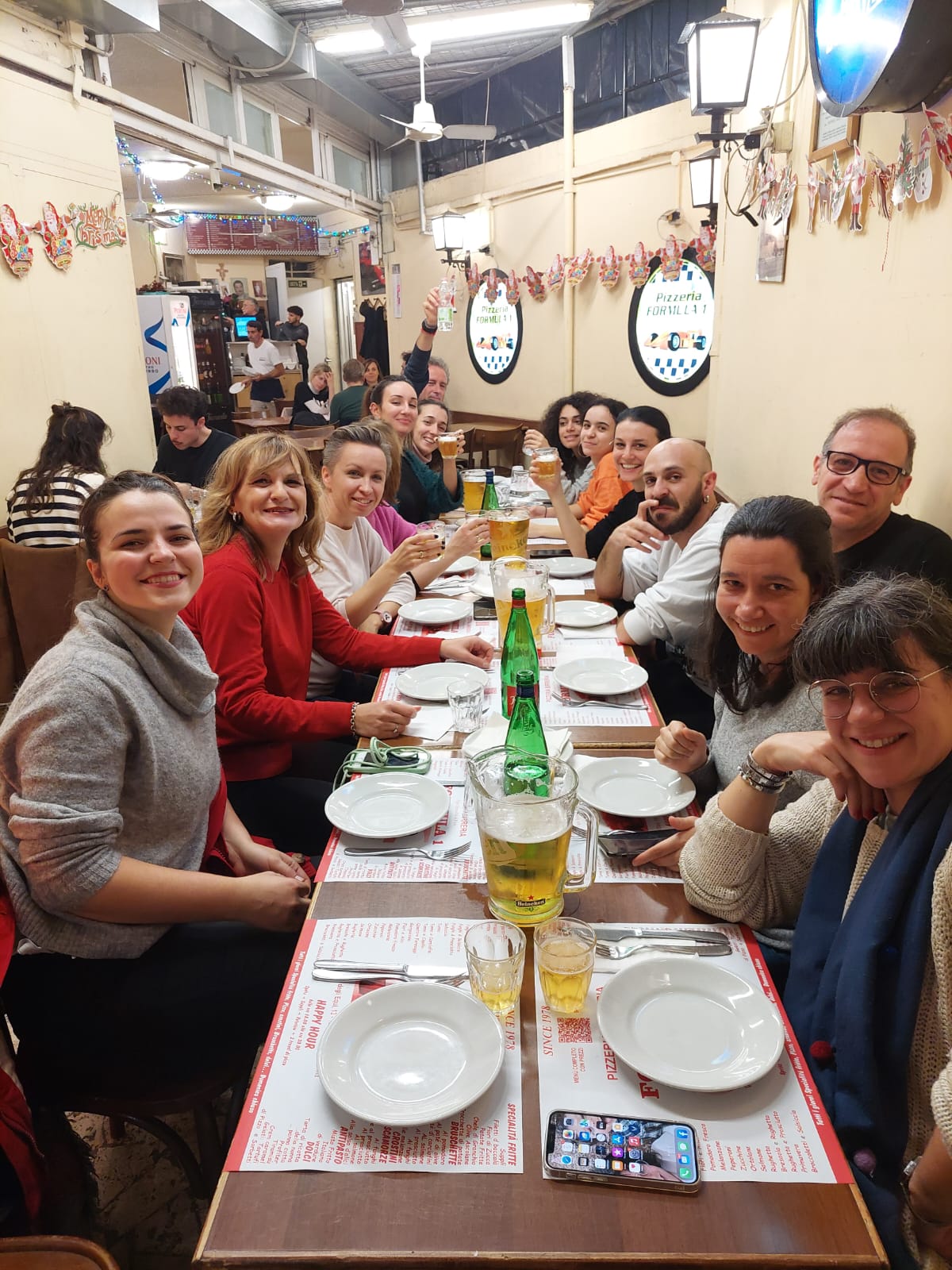
Raporty końcowe z projektu SactAge - Sport for Active Aging
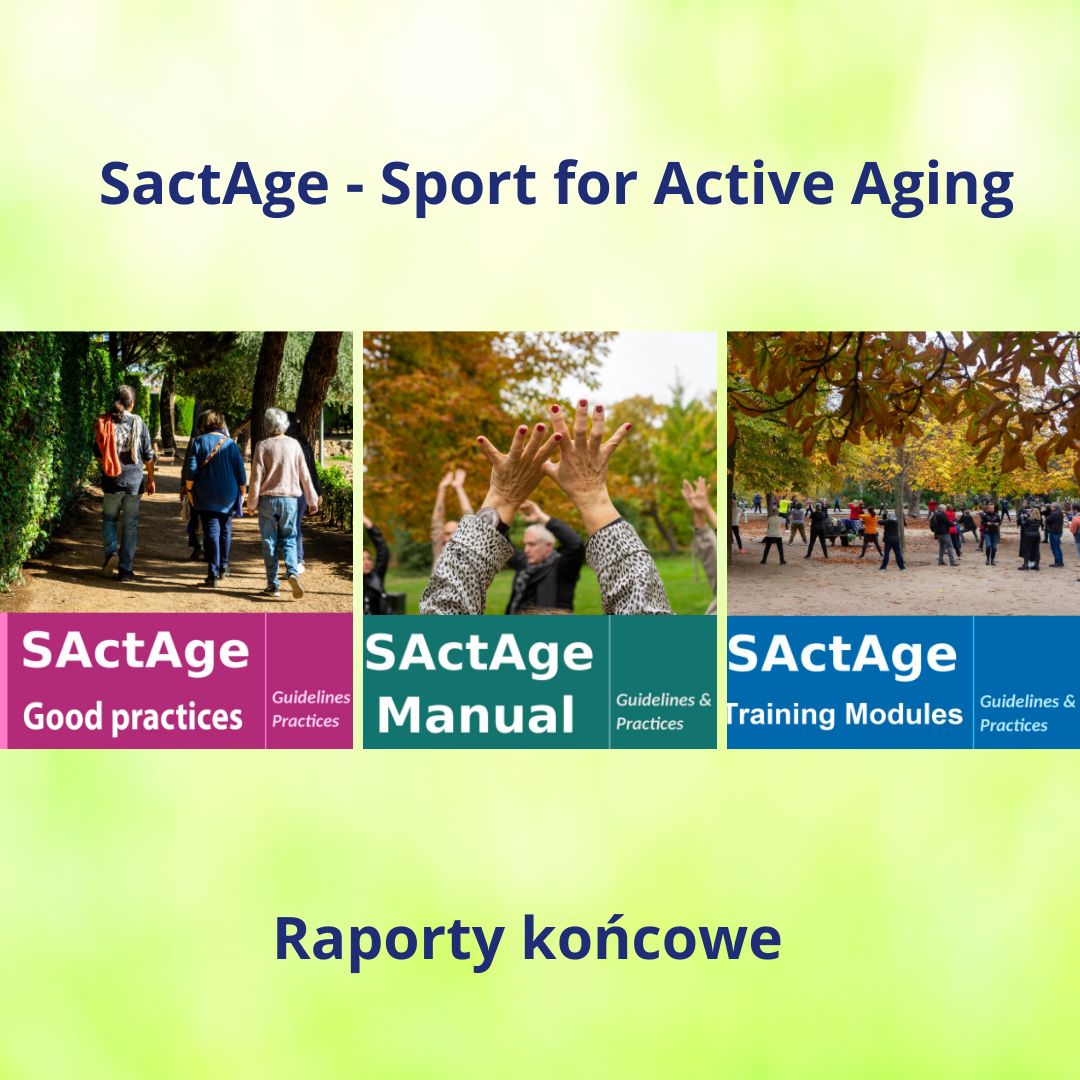
- jak skutecznie uwrażliwiać osoby starsze na korzyści płynące ze sportu,
- jak bezpiecznie rozwijać indywidualne praktyki sportowe w domu,
- jak rozwijać uprawianie sportów na świeżym powietrzu,
- jak rozwijać praktyki sportowe i motoryczne osób starszych poprzez łączenie sportu i turystyki socjalnej,
- rozwijać wolontariat seniorów na rzecz promocji aktywności ruchowej wśród osób starszych.
Podręcznik IO2 - SActAge zawiera zasady i wytyczne oraz ćwiczenia praktyczne dotyczycące powyższych czterech tematów zawartych w IO1- SActAge.
Podręcznik IO3 - SActAge to moduł szkoleniowy dla seniorów-wolontariuszy, pracowników socjalnych, trenerów sportowych, jak zostać promotorem praktyk sportowych dla osób starszych.
Dokumenty zostały wydane w ramach wydawnictwa IRSIE.
Pobierz bezpłatne materiały:
